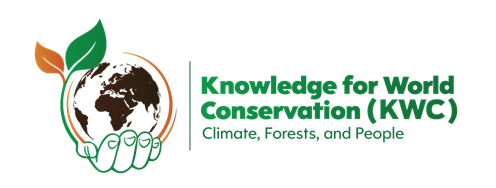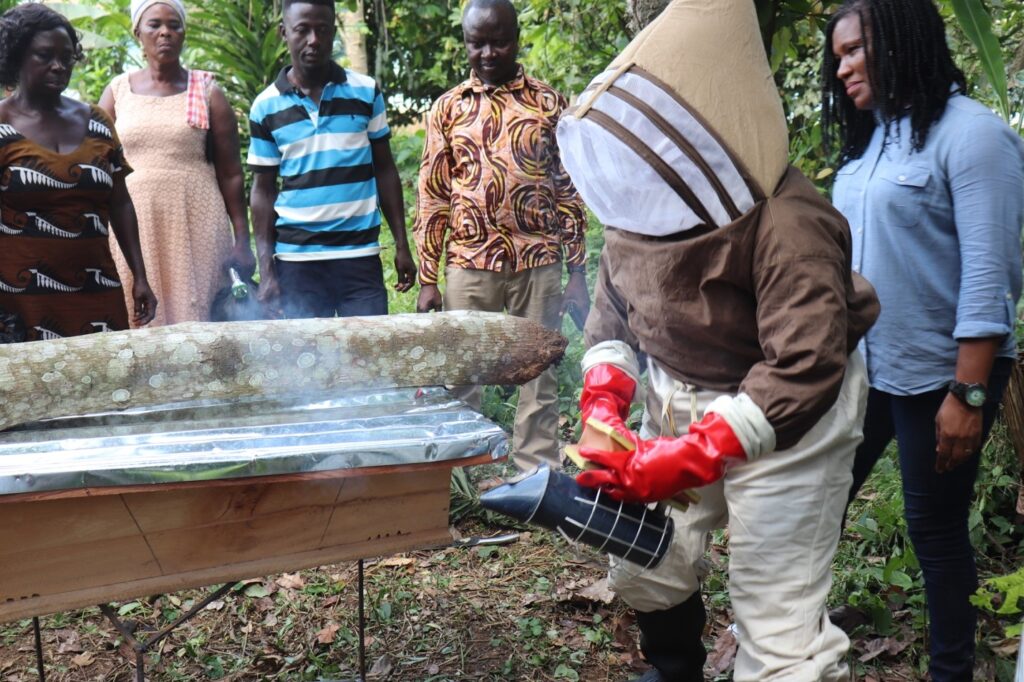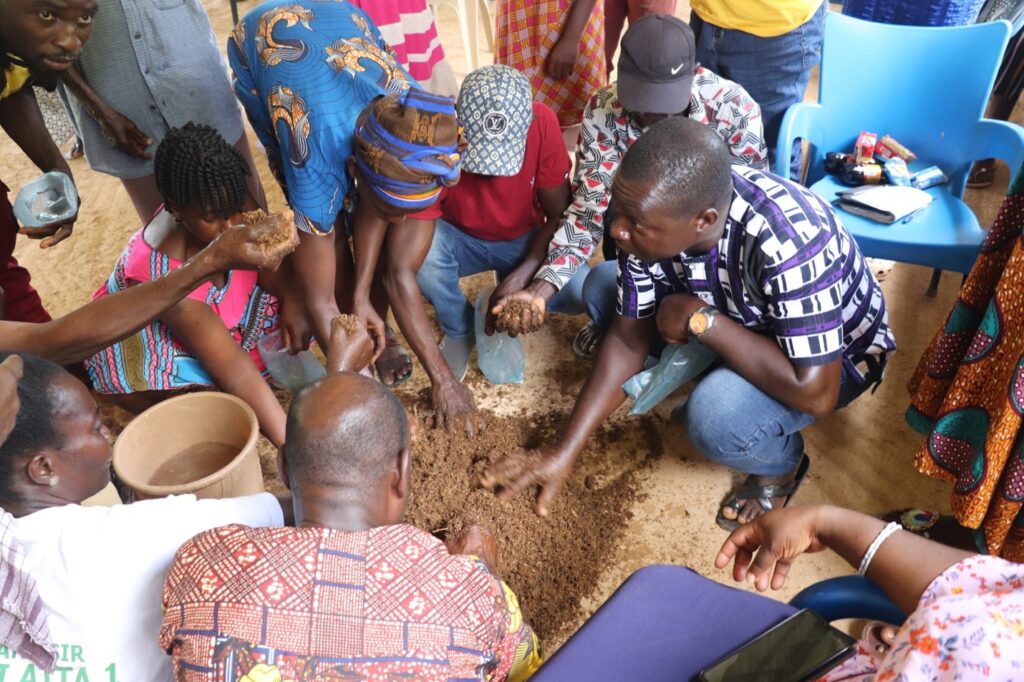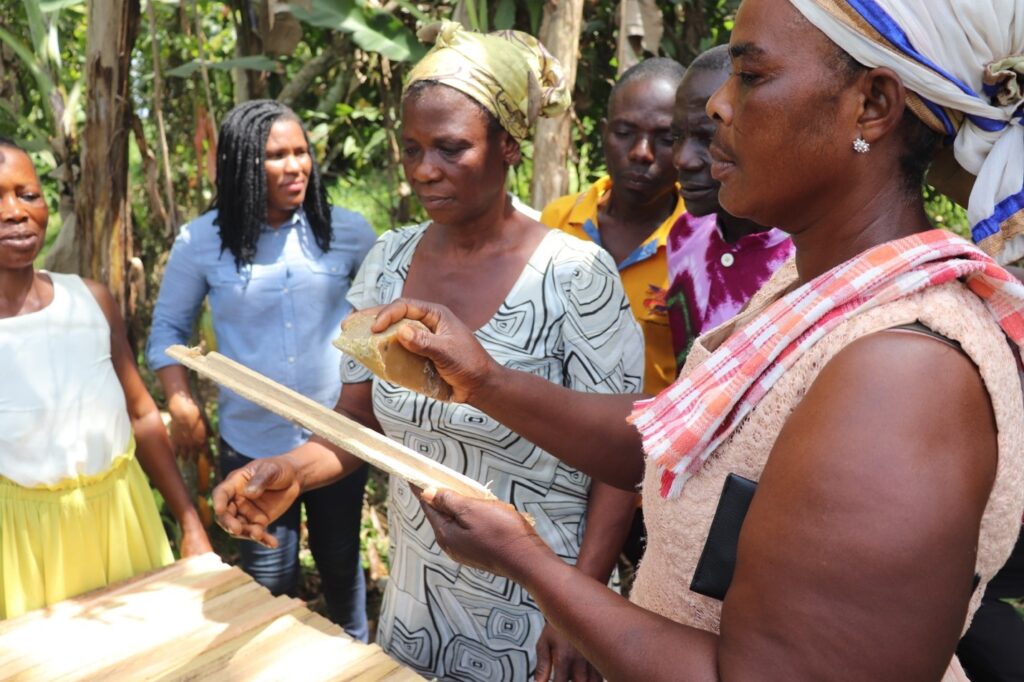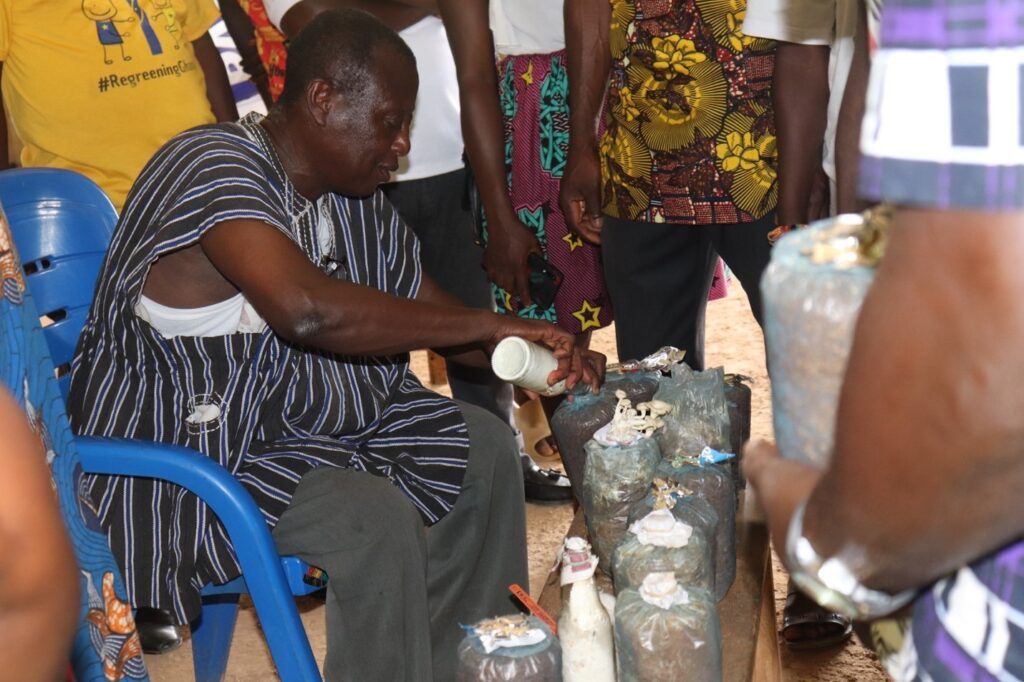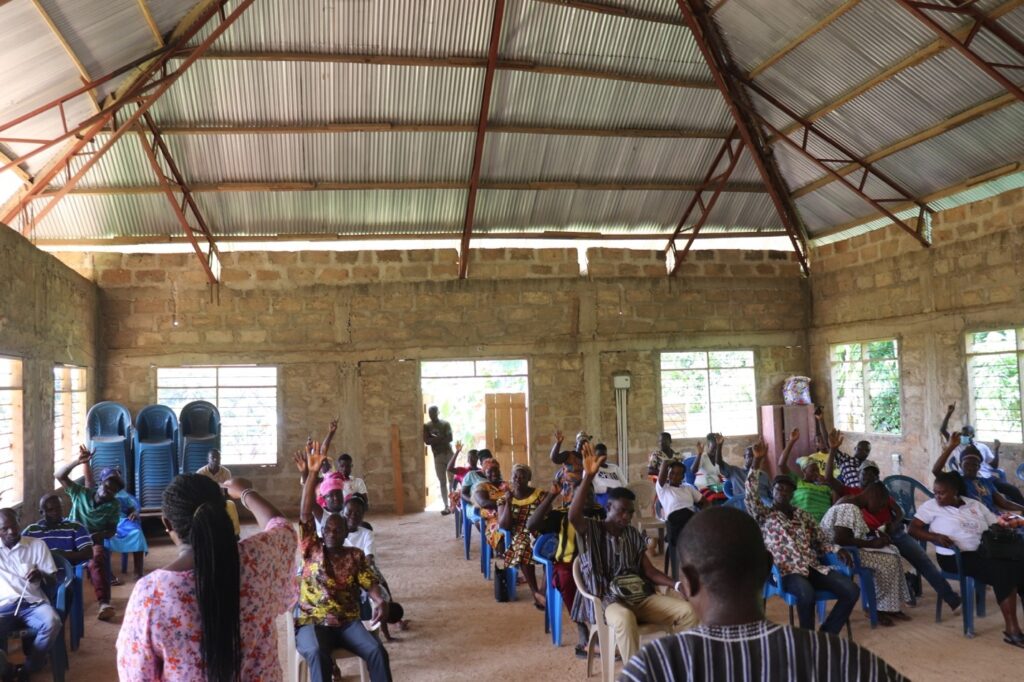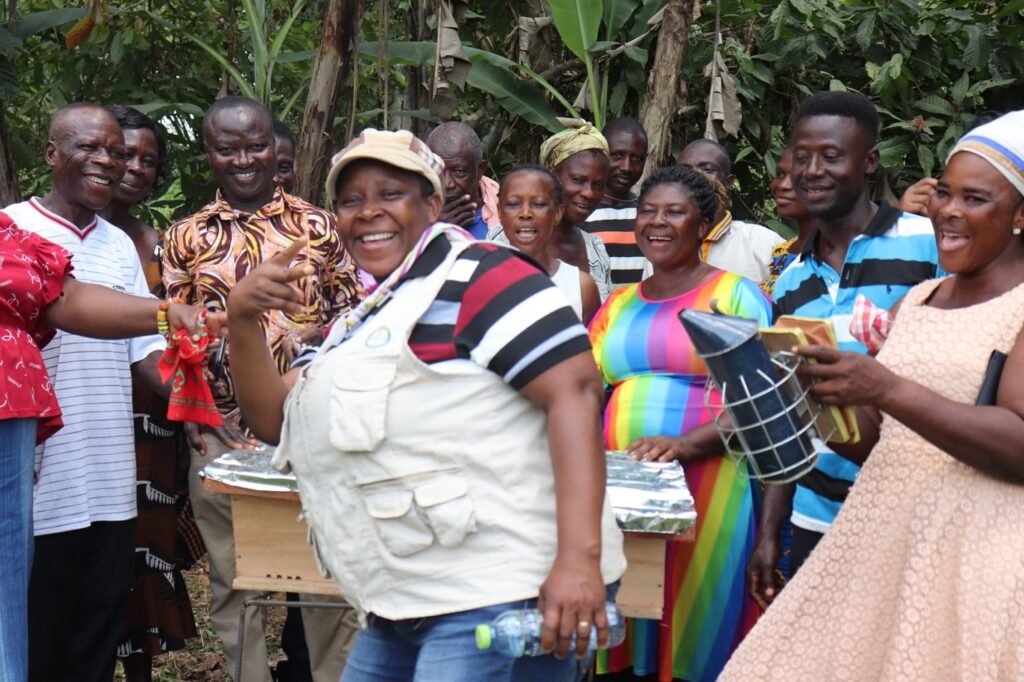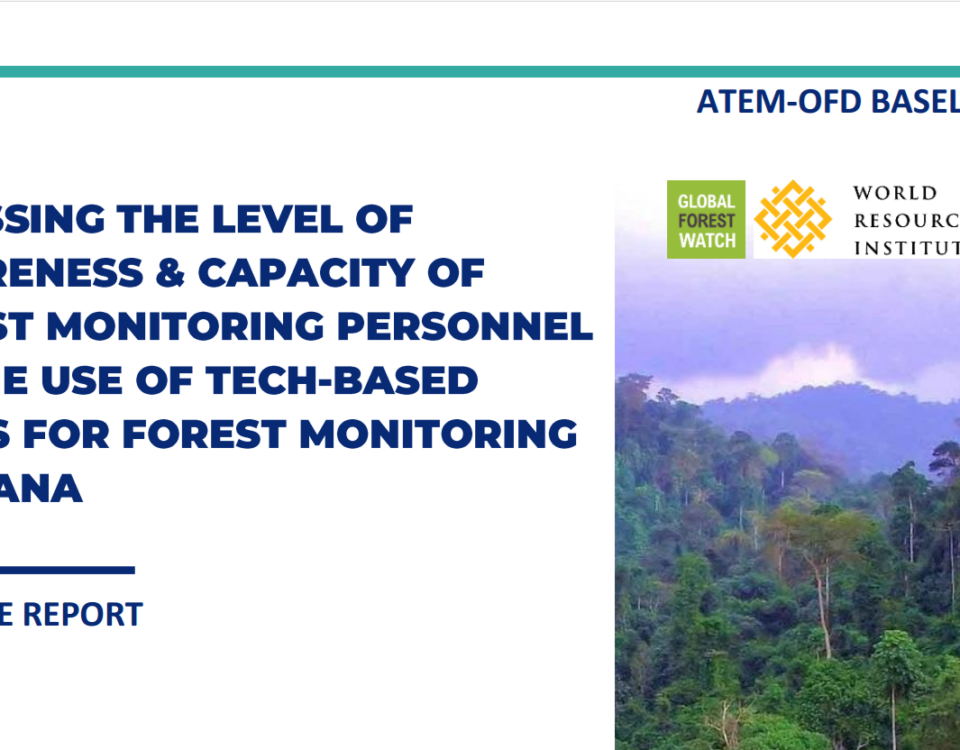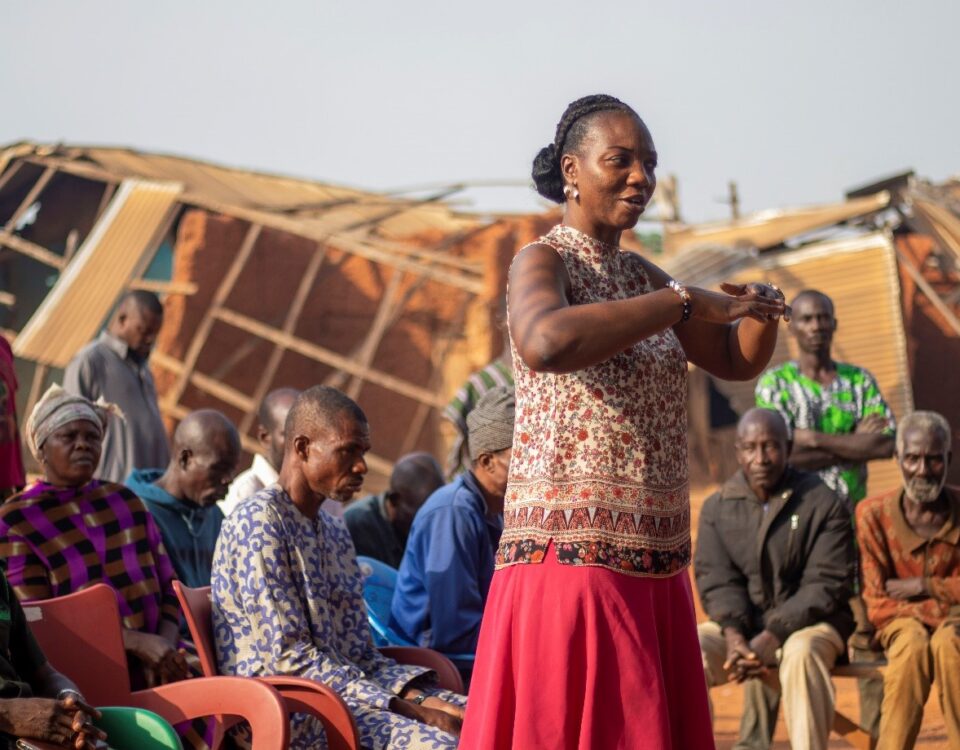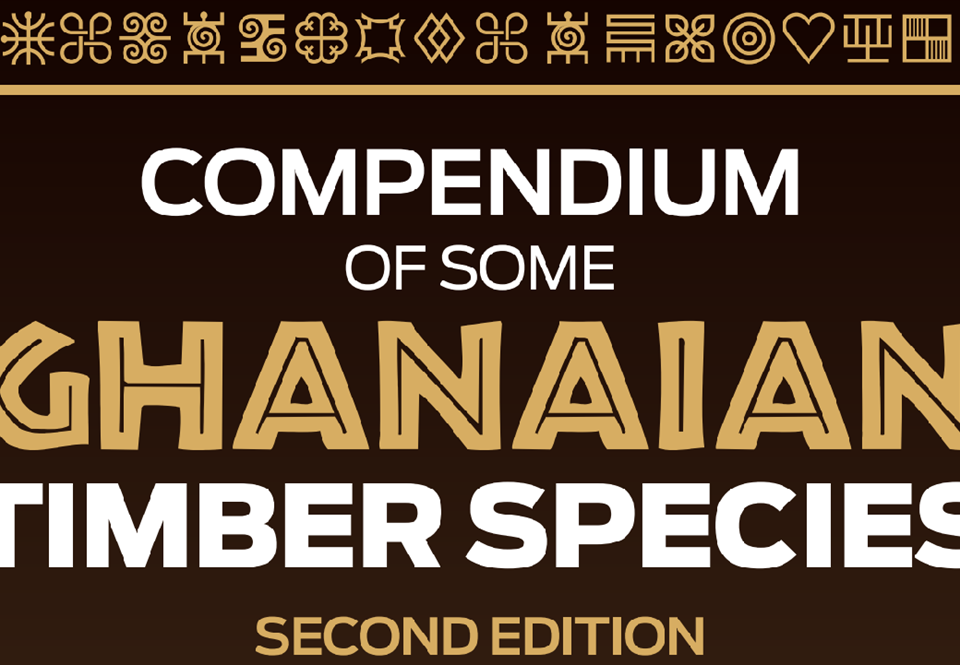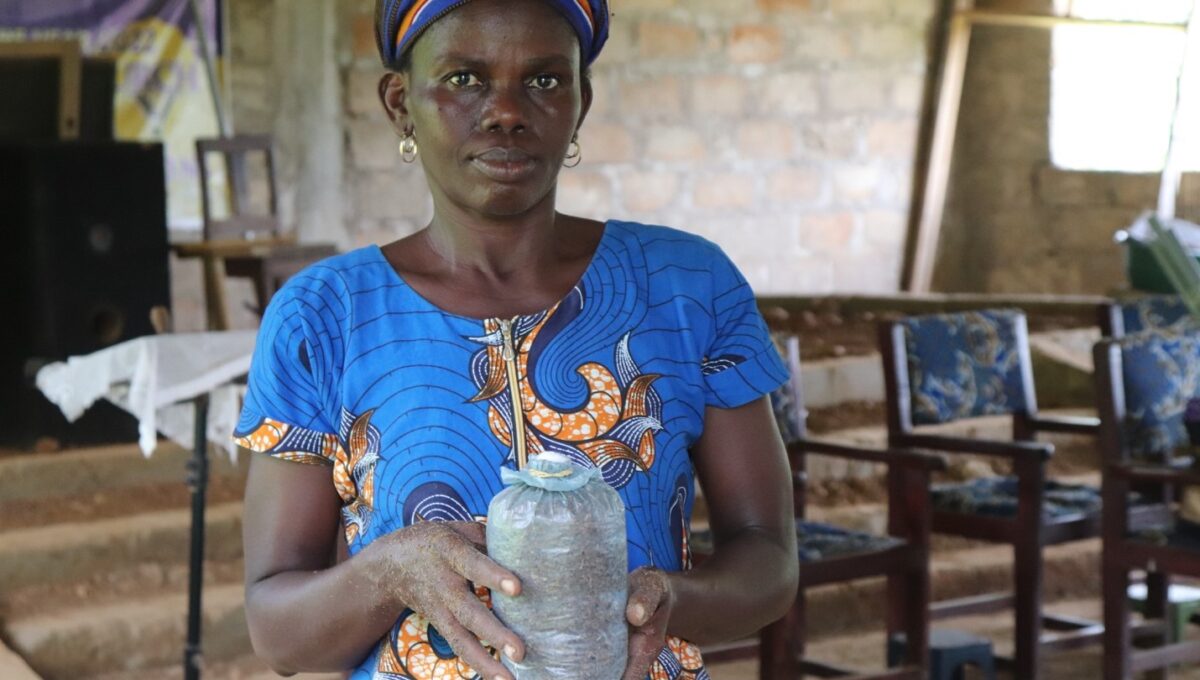
KWC, the implementation partner for the Ghana Cocoa Forest REDD+ Programme (GCFRP) in the Atewa hotspot intervention area, is creating livelihood options in beekeeping, mushroom and snail farming for smallholder cocoa farmers who have adopted climate-smart farming practices.
I mproving the livelihoods of smallholder farmers and communities through alternative livelihood support under the Ghana Cocoa Forest REDD+ Programme (GCFRP) has been identified as an important adaptation strategy to maximize economic gains and to reduce rural poverty while promoting cocoa intensification to reduce expansionist cocoa practices. It is envisaged that a sustainable livelihood intervention directed towards frontline landscape actors, (especially cocoa farmers) whose farm level activities contribute to carbon emission will enhance actions towards avoiding deforestation and forest degradation.
The Forestry Commission of Ghana, with funding support from the World Bank after a series of survey in the Hotspot Intervention Area (HIA) communities and other stakeholder’s engagement, identified a number of alternative livelihood interventions for cocoa farmers.
The intention behind the intervention is to provide sustainable alternative livelihood opportunities for frontline landscape actors to maximize streams of economic income while enhancing their capacities to contribute significantly to emission reduction. This intervention is earmarked outside forest reserves, represents one of the strategic steps toward addressing commodity-driven deforestation and forest degradation.
As part of the process, the National REDD+ secretariat of the Forestry Commission in charge of the GCFRP Livelihood implementation, contracted KWC to facilitate and operationalize the program in the Atewa HIA.
KWC leads the implementation of three preferred Livelihood options chosen by selected communities under the Atewa HIA. The preferred Livelihoods includes Beekeeping, Mushroom farming and Snail Farming. The project have selected beneficiaries who are strictly cocoa farmers and have adopted climate-smart cocoa farming practices for training and set them up with their preferred livelihood options.
The project started with the training of 60 beneficiaries from 8 communities in Beekeeping, Mushroom farming and Snail farming in the Atewa HIA. After the introductory training, some beneficiaries out of the 60 will be presented with set-up materials to initiate their alternative Livelihood. Project implementation has started with theoretical and practical training and field visits at potential beneficiaries’ communities and set-up sites to assess their appropriateness. The implementation will continue till the end of the year.
It is expected that this program will help improve the Livelihood of local actors, enhance effective participation of local actors in GCFRP and also enhance carbon emission reduction strategies.
About the Ghana Cocoa Forest REDD+ Programme (GCFRP):
The Ghana Cocoa Forest REDD+ Programme (GCFRP) is the premiere program fully developed under the Ghana REDD+ Strategy. The GCFRP aims to significantly reduce carbon emissions resulting from cocoa expansion into forest areas through the promotion of appropriate climate smart cocoa production systems to increase cocoa yields and improve rural livelihoods and economies, and with the potential to attract USD 50 million in payment for emission reductions. Learn more about the programme from here.
